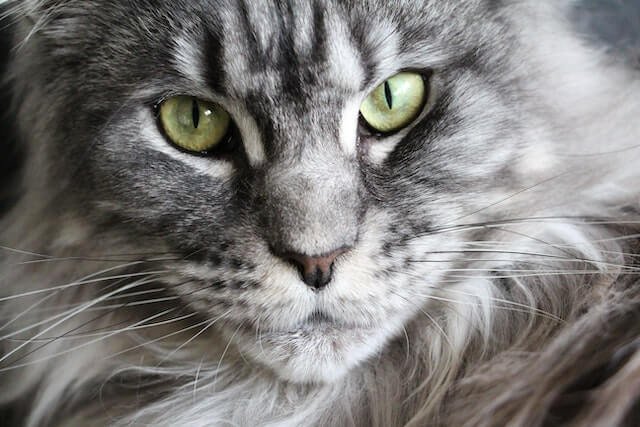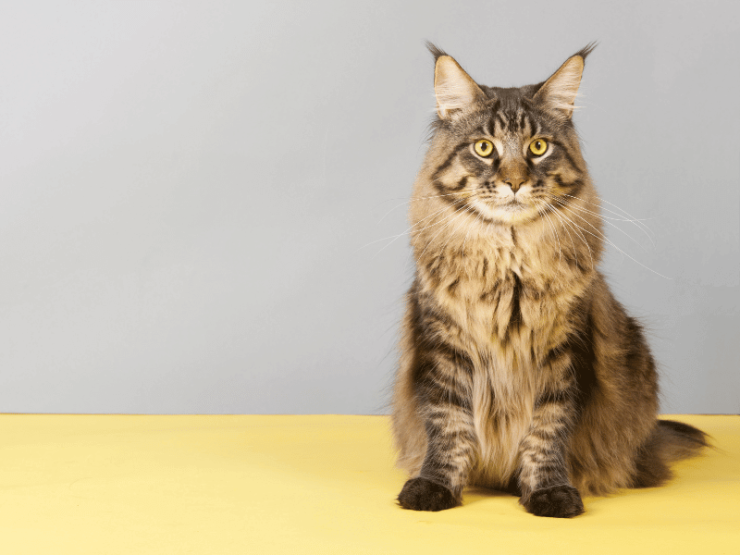Are you an allergy sufferer who dreams of owning a cat but worries about the constant sneezing and itchy eyes? Look no further than the majestic Maine Coon. Known for their striking appearance and gentle nature, Maine Coons are often touted as hypoallergenic cats, making them a perfect choice for those with allergies. But is this claim valid? In this article, we will explore the fascinating world of Maine Coons and their potential benefits for allergy sufferers. We’ll uncover the truth about their hypoallergenic qualities, delve into the unique characteristics that set them apart from other breeds, and provide practical tips for keeping allergies at bay. So, if you’re eager to find a feline companion that won’t trigger those dreaded allergy symptoms, join us on this journey to discover if Maine Coons is the perfect choice for allergy sufferers.
Understanding Cat Allergies
Cat allergies are a common concern for many individuals who love cats but suffer from allergic reactions in their presence. These allergies are caused by a reaction to a specific protein found in cat saliva, urine, and dander. When cats groom themselves, they spread this protein onto their fur, eventually becoming airborne, leading to allergies in susceptible individuals.
For allergy sufferers, symptoms can range from mild to severe, including sneezing, coughing, itchy or watery eyes, nasal congestion, and even asthma attacks. The severity of these symptoms can vary depending on the individual’s sensitivity to the allergen and the amount of exposure.
Are Maine Coons Hypoallergenic?
Maine Coons are often called hypoallergenic cats, which means they are less likely to cause allergies in sensitive individuals. While it is true that some people with allergies find they can tolerate Maine Coons better than other cat breeds, it is essential to note that no cat is entirely hypoallergenic. The term “hypoallergenic” means that a cat is less likely to cause an allergic reaction, but it does not guarantee that all allergy sufferers will be symptom-free.
The hypoallergenic qualities of Maine Coons can be attributed to several factors. First, their long, shaggy fur helps to trap allergens, preventing them from becoming airborne. Additionally, Maine Coons have a lower level of the allergenic protein, Fel d 1, in their saliva than other cat breeds. This protein is a significant trigger for human allergies, and a lower level can reduce the likelihood of allergic reactions.
The Myth of Hypoallergenic Cats
Before we delve deeper into the hypoallergenic qualities of Maine Coons, it is essential to debunk the myth of completely hypoallergenic cats. While some breeds may produce fewer allergens or have traits that make them more suitable for allergy sufferers, it is essential to understand that individual reactions to allergens can vary greatly. What may be tolerable for one person may trigger severe allergies in another.
It is also worth noting that allergies can develop over time, even in individuals who have previously been able to tolerate cats without any issues. Therefore, it is crucial to consider all factors and take necessary precautions before bringing any cat into a home with allergy sufferers.
Common Triggers of Cat Allergies

The allergenic proteins in cat saliva, urine, and dander primarily trigger cat allergies. These proteins can become airborne and quickly enter the respiratory system, leading to allergic reactions. These proteins can also cling to furniture, carpets, and other surfaces, making it challenging to eliminate them from the environment completely.
To minimize exposure to these allergens, regular cleaning and maintenance are essential. Vacuuming carpets and upholstery regularly, using air purifiers with HEPA filters, and washing bedding in hot water can help reduce the allergen load in the environment.
Factors to Consider When Choosing a Cat for Allergy Sufferers
When considering getting a cat as an allergy sufferer, there are several factors to consider. While no cat is entirely hypoallergenic, certain breeds and individual cats may be more suitable for allergy sufferers due to their lower allergen production or specific coat characteristics.
First, spending time with different cat breeds is recommended to see if you have any allergic reactions. Some individuals may find that they are only allergic to specific breeds or individual cats, while others may be sensitive to all cats. Additionally, consider the allergenic protein levels in a cat’s saliva and dander, as lower levels are generally associated with reduced allergic reactions.
Maine Coon Characteristics and Their Impact on Allergies
Maine Coons are known for their large size, striking appearance, and friendly nature. These gentle giants have a semi-long hair coat that requires regular grooming to prevent matting and tangles. The length and texture of their fur can significantly affect the amount of allergens they produce.
Due to the length and density of their fur, Maine Coons are excellent at trapping allergens and preventing them from becoming airborne. Regular brushing and grooming can help remove loose hair and dander, further reducing the allergen load in the environment. However, it is essential to note that grooming a cat can also temporarily release allergens into the air, so it is recommended to have a non-allergic individual assist with grooming or do it in a well-ventilated area.
Tips for Managing Allergies with a Maine Coon

While Maine Coons may be more suitable for allergy sufferers than other cat breeds, it is still crucial to take steps to manage allergies effectively. Here are some tips to help minimize allergic reactions when living with a Maine Coon:
- Create an allergen-free zone: Designate specific areas of your home as “allergen-free” zones where your Maine Coon is not allowed. This can include bedrooms or other areas where you spend significant time.
- Regular grooming: Brush your Maine Coon regularly to remove loose hair and dander. This will help reduce the amount of allergens present in your home.
- Use air purifiers: Invest in high-quality air purifiers with HEPA filters to capture and remove allergens from the air.
- Clean your home regularly: Vacuum carpets and upholstery frequently, dust surfaces, and wash bedding in hot water to reduce the allergen load in your home.
- Consider allergy medication: Consult with your healthcare provider about medications that can help alleviate symptoms when necessary.
Other Hypoallergenic Cat Breeds to Consider
While Maine Coons may be a suitable choice for many allergy sufferers, other cat breeds are also known for their hypoallergenic qualities. These include:
- Siberian: Siberian cats produce lower levels of the allergenic protein Fel d 1 and are often well-tolerated by individuals with allergies.
- Russian Blue: Russian Blues have a shorter coat that produces fewer allergens, making them a good choice for allergy sufferers.
- Sphynx: While Sphynx cats may seem like an obvious choice for allergy sufferers due to their lack of fur, it is essential to note that they still produce allergens through their saliva and dander.
Conclusion: Making an Informed Decision for Allergy Sufferers
In conclusion, while Maine Coons are often considered a good choice for allergy sufferers due to their hypoallergenic qualities, it is essential to approach this decision cautiously. No cat is entirely hypoallergenic, and individual reactions to allergens can vary greatly. Spending time with different cat breeds and individual cats is recommended to see if you have any allergic reactions before deciding.
If you can tolerate Maine Coons or other hypoallergenic cat breeds, managing allergies effectively can help create a harmonious living environment. Regular grooming, creating allergen-free zones, using air purifiers, and maintaining a clean home can significantly reduce allergic reactions and allow allergy sufferers to enjoy the companionship of a feline friend.
Remember, owning a cat is a long-term commitment, and it is essential to consider all factors, including allergies, before bringing a cat into your home. By making an informed decision and taking necessary precautions, allergy sufferers can find a cat that brings joy and companionship without triggering those dreaded symptoms.




